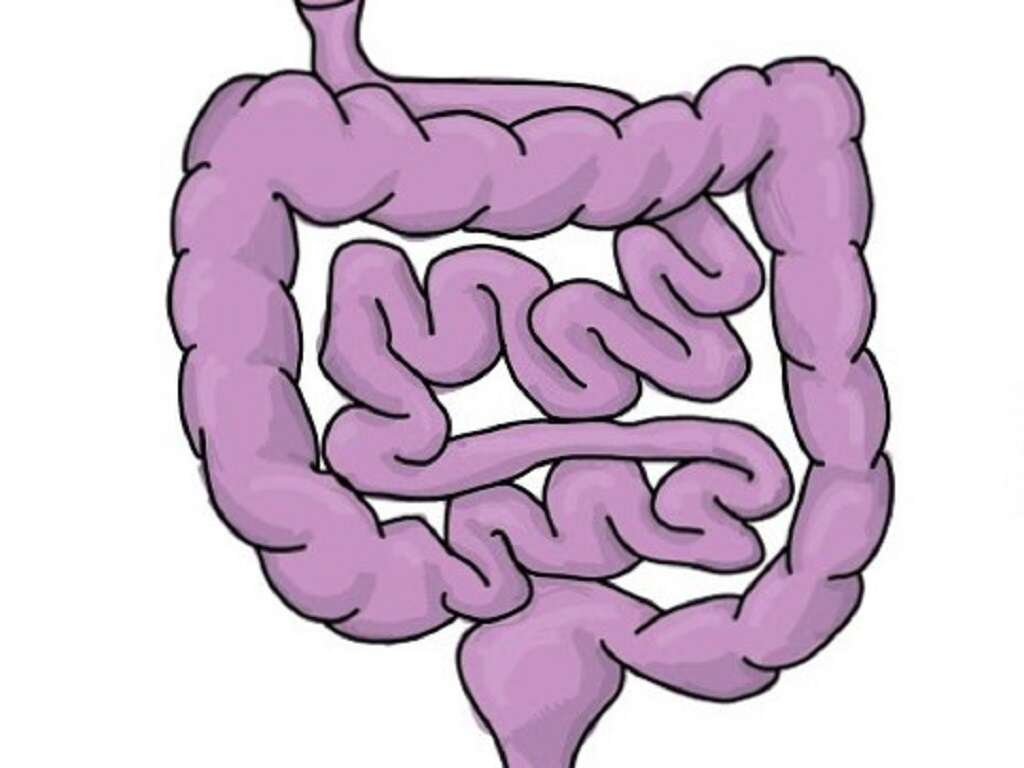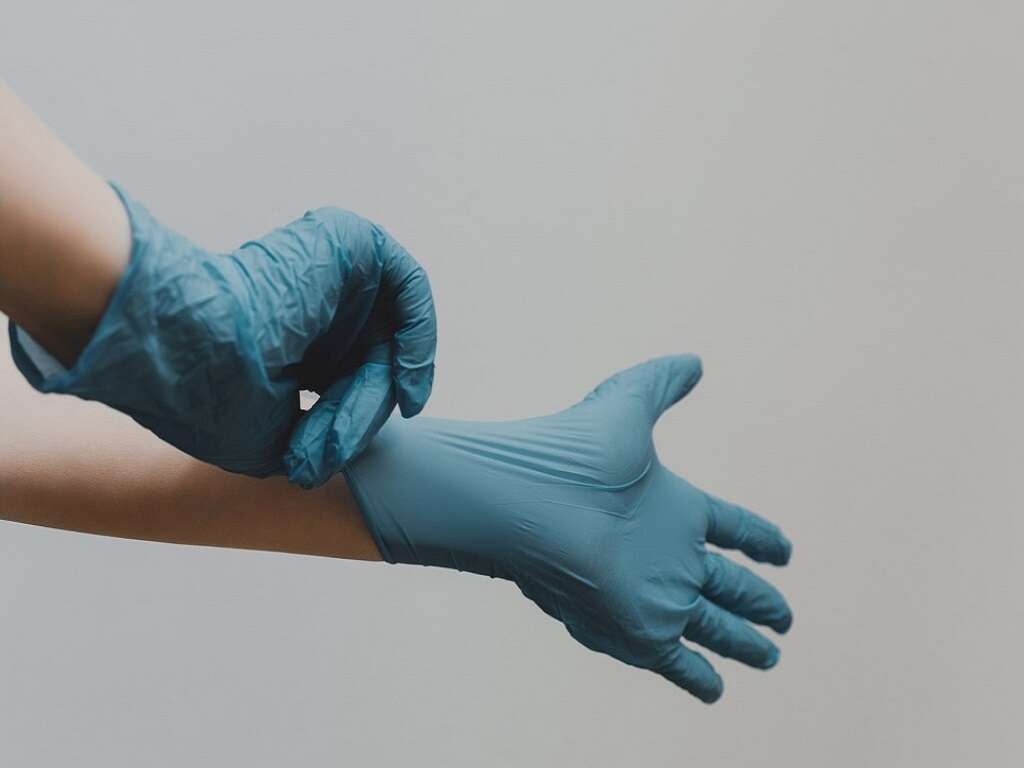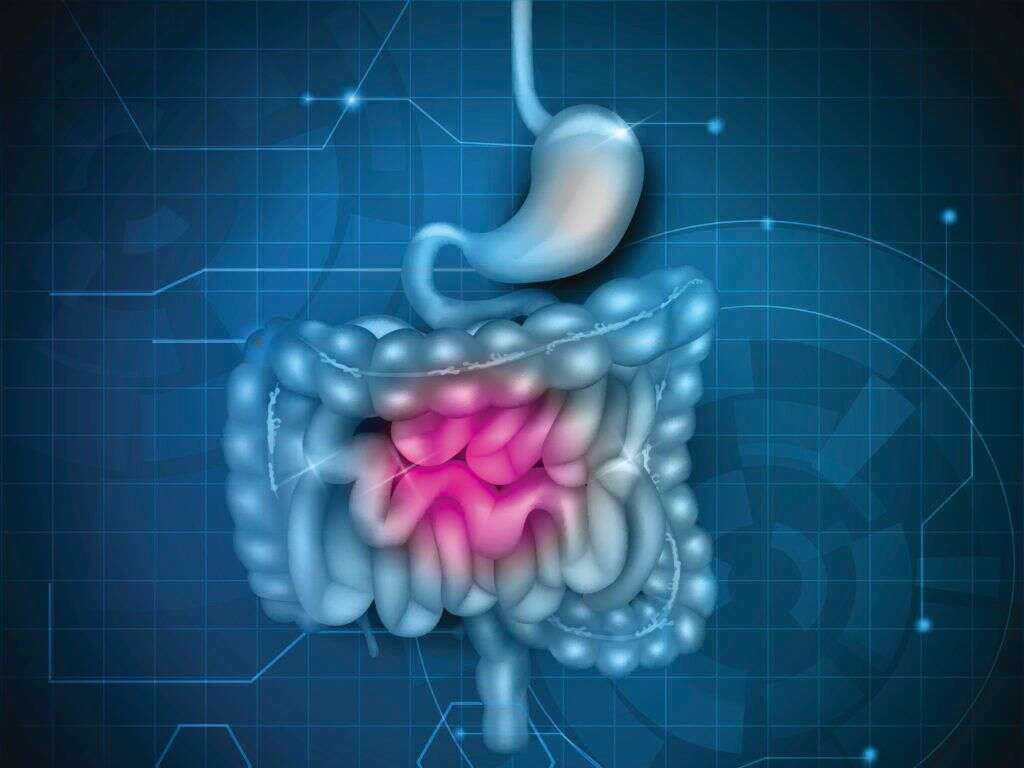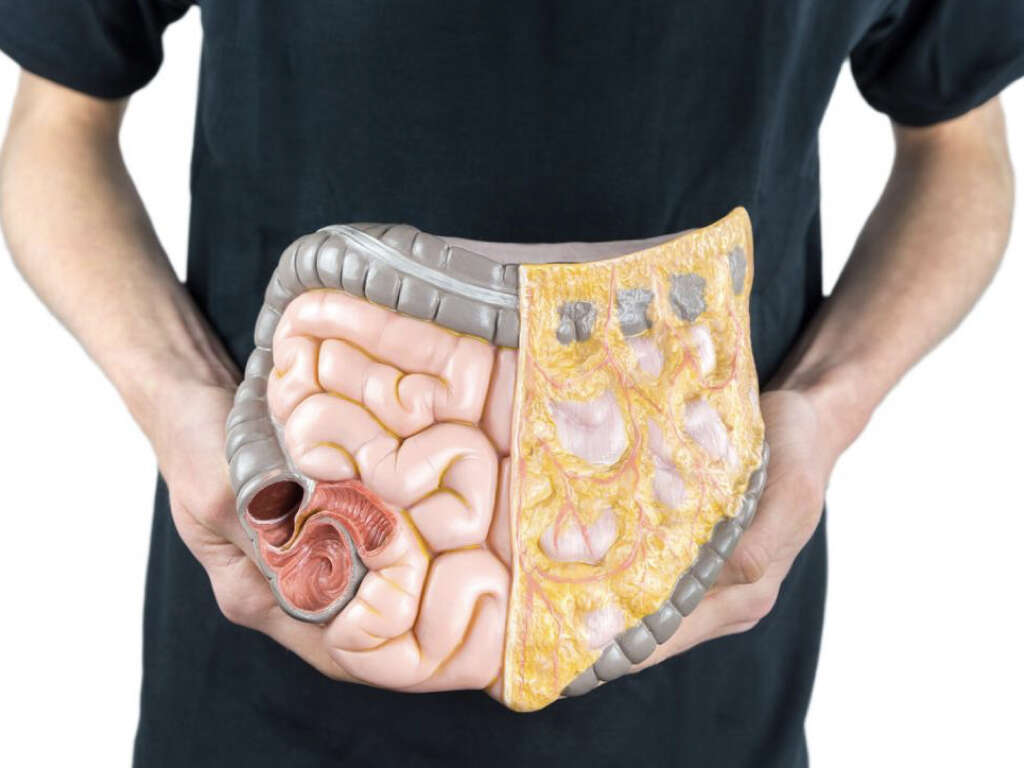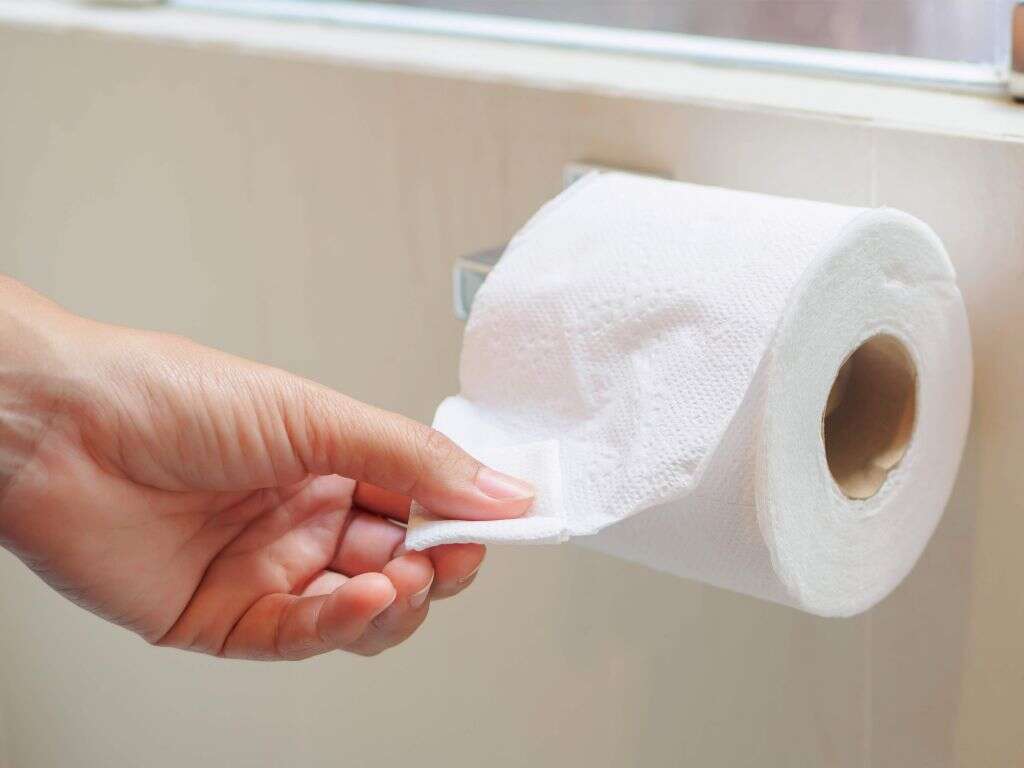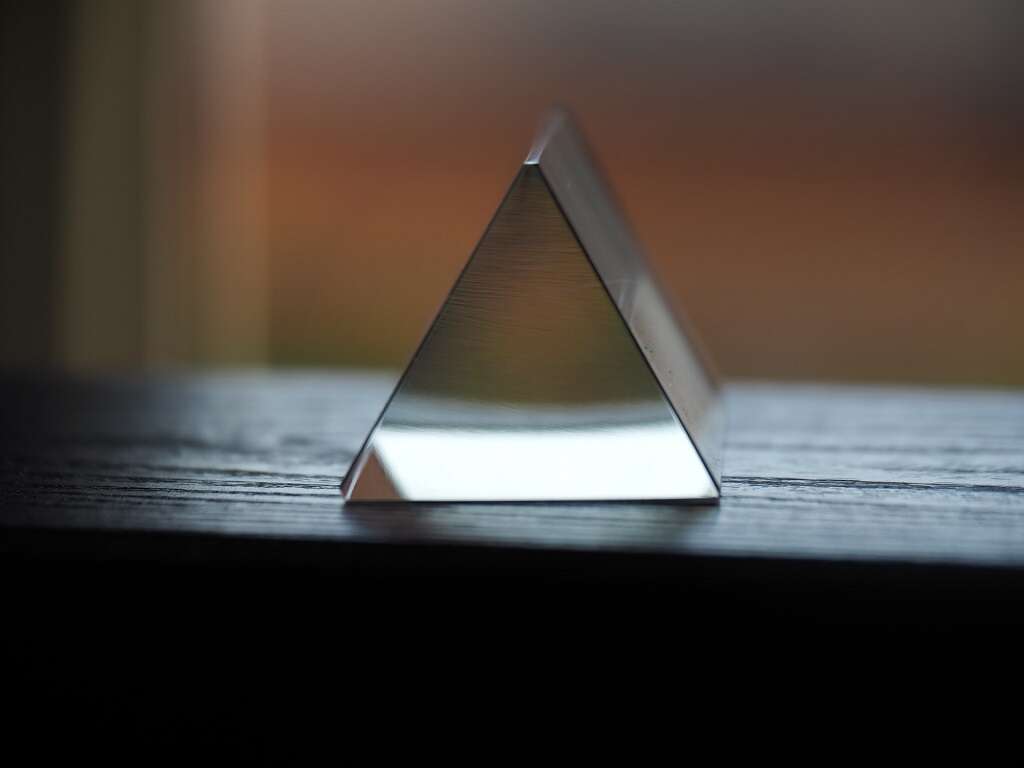Large Intestine Function Overview
 Article Sources
Article Sources
- 1. Quigley, Eamonn M M. 'Gut Bacteria in Health and Disease.' Gastroenterology & Hepatology, Millennium Medical Publishing, Sept. 2013, www.ncbi.nlm.nih.gov/pmc/articles/PMC3983973
- 2. Rinninella, Emanuele, et al. 'What Is the Healthy Gut Microbiota Composition? A Changing Ecosystem across Age, Environment, Diet, and Diseases.' Microorganisms, MDPI, 10 Jan. 2019, www.ncbi.nlm.nih.gov/pmc/articles/PMC6351938
- 3. Sender, Ron, et al. 'Revised Estimates for the Number of Human and Bacteria Cells in the Body.' PLoS Biology, Public Library of Science, 19 Aug. 2016, www.ncbi.nlm.nih.gov/pmc/articles/PMC4991899
- 4. Hsiao, William W L, et al. 'The Microbes of the Intestine: an Introduction to Their Metabolic and Signaling Capabilities.' Endocrinology and Metabolism Clinics of North America, U.S. National Library of Medicine, Dec. 2008, www.ncbi.nlm.nih.gov/pmc/articles/PMC4411945
- 5. Sears, Cynthia L. 'A Dynamic Partnership: Celebrating Our Gut Flora.' Anaerobe, Academic Press, 27 June 2005, www.sciencedirect.com/science/article/abs/pii/S1075996405000685
Large vs. Small Intestine
The large and small intestines differ in their form in various ways. The colon is wider. The longitudinal layers of the muscularis are reduced to the taenia coli, which refers to the three strap-like structures. Simple columnar epithelium lines the wall of the large bowel.
Unlike the small intestines with its evaginations, the large bowel contains the intestinal glands, which are also known as invaginations. Even though goblet cells are present in the small intestines, they exist in much larger quantities in the large intestine.
Advertisement
